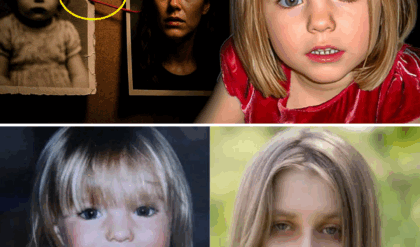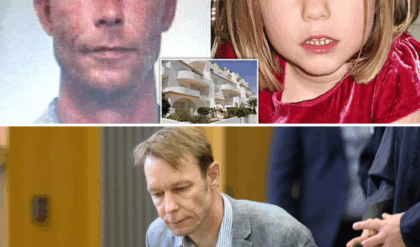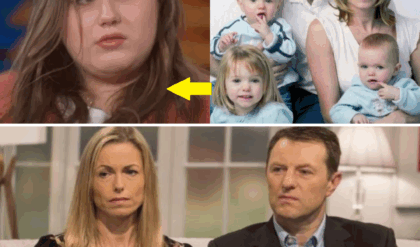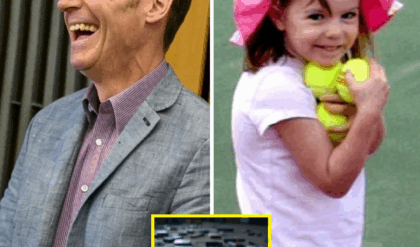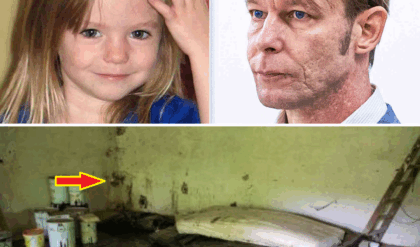The disappearance of Madeleine McCann on May 3, 2007, from a holiday apartment in Praia da Luz, Portugal, remains one of the most high-profile missing person cases in history. For nearly two decades, the narrative of an abduction by a stranger has dominated public perception, fueled by her parents, Kate and Gerry McCann, and amplified by global media. However, British journalist Sonia Poulton, a vocal skeptic since the case’s inception, boldly asserts, “I am damn sure Madeleine McCann was not abducted.” Her provocative stance, backed by years of independent investigation, has sparked intense debate, challenging the official story and raising questions about what really happened to the three-year-old. This article explores Poulton’s claims, her evidence, and the broader implications for a case mired in controversy, drawing on her statements and objective analysis of available information.
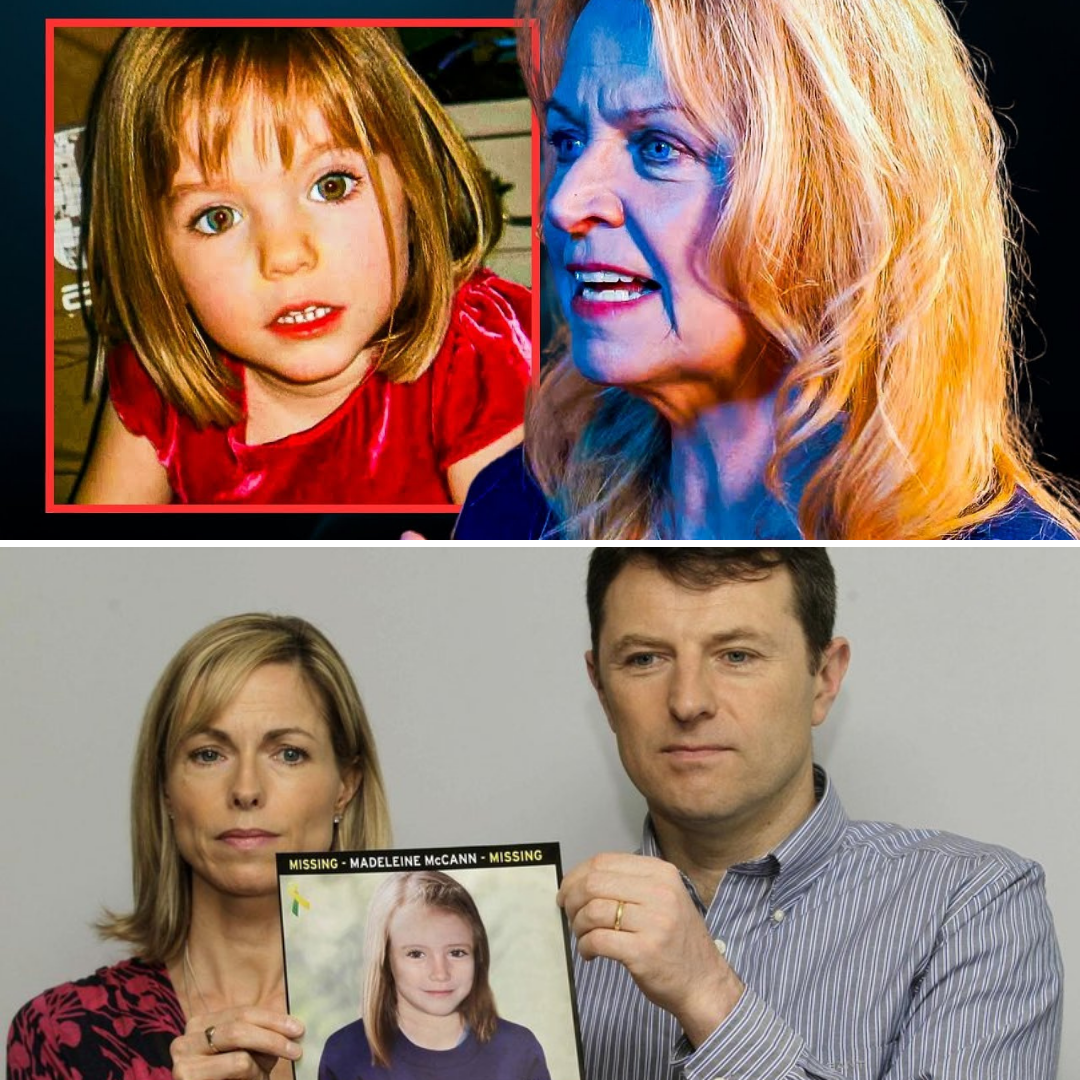
Sonia Poulton’s Rejection of the Abduction Theory
Sonia Poulton, a freelance journalist and documentary filmmaker, has been a persistent critic of the abduction narrative since Madeleine vanished. Through interviews, podcasts, and social media, including a notable October 2024 appearance on Anything Goes with James English, she declared her certainty that Madeleine was not abducted, arguing the theory lacks evidential support. Her 17-year investigation includes two documentaries—The Untold Story of Madeleine McCann and Madeleine McCann: Public Relations & Saving Reputations—and multiple trips to Praia da Luz. Poulton contends that the case is riddled with inconsistencies, media manipulation, and institutional cover-ups, describing it as a “war of information” that obscures the truth.
Her central claim is that the abduction narrative, championed by the McCanns and their PR team, does not hold up under scrutiny. She emphasizes the absence of forensic evidence—such as DNA, fingerprints, or credible witness sightings—supporting an intruder’s entry into the McCanns’ apartment. In a 2023 post on X, she asked, “Where is the evidence of an abduction?” noting that despite £14 million in UK taxpayer funding for Scotland Yard’s Operation Grange, no concrete proof has emerged. Poulton aligns with early Portuguese police findings, particularly those of investigator Gonçalo Amaral, whose 2008 book The Truth of the Lie suggested Madeleine died in the apartment and the abduction was staged.
The Evidence Behind Poulton’s Claim
Poulton’s “proof,” while not conclusive, draws from case file analysis, witness statements, and overlooked details. Her key points include:
-
Cadaver and Blood Dog Alerts: In July 2007, British sniffer dogs Eddie and Keela, trained to detect cadaver odor and blood, alerted to multiple locations in the McCanns’ apartment, including behind a sofa, in a wardrobe, and on Kate’s clothing. They also signaled the McCanns’ rental car, used weeks after Madeleine’s disappearance. Poulton argues these alerts, documented in Portuguese police files, suggest Madeleine died in the apartment, contradicting the abduction theory. The McCanns dismissed the findings as unreliable, but Poulton cites the dogs’ handler, Martin Grime, who emphasized their accuracy in numerous cases.
Inconsistent Timelines and Statements: Poulton highlights discrepancies in the accounts of the McCanns and their friends, known as the “Tapas 7,” who dined together on May 3. The group claimed to check on their children every 15–30 minutes, but police files reveal gaps and contradictions in their timelines. For example, Jane Tanner’s sighting of a man carrying a child at 9:15 PM, initially central to the abduction theory, was later questioned by Operation Grange, which suggested it was an innocent father. Poulton notes the group’s refusal to participate in a police reconstruction raises suspicions.
Lack of Physical Evidence: Despite extensive searches, no trace of an abductor—such as signs of forced entry, DNA, or CCTV footage—has been found. Poulton points out that the apartment’s shutters, initially reported as jimmied, showed no tampering, and the open window cited by Kate McCann could have been opened from inside. She questions how an abductor could leave no forensic trace in a busy resort area.
Media and Political Influence: Poulton alleges a deliberate effort to promote the abduction narrative, involving high-profile figures and institutions. She claims six UK prime ministers, from Tony Blair to Boris Johnson, have supported the McCanns, ensuring Operation Grange’s funding despite limited results. She criticizes Clarence Mitchell, the McCanns’ PR manager, for orchestrating media campaigns that silenced dissent. The 2014 death of Brenda Leyland, a McCann skeptic hounded by Sky News as a “troll,” is cited as evidence of efforts to suppress alternative views.
Portuguese Police Findings: Poulton heavily references Amaral’s investigation, which concluded Madeleine died accidentally, possibly from a fall or sedation, and her body was concealed. A 2007 interim report by Inspector Tavares de Almeida noted “indications” of the McCanns’ involvement, though no charges were filed. Poulton argues these findings were suppressed to protect reputations, citing the McCanns’ legal battles against Amaral, which they lost in Portugal’s Supreme Court in 2017.
The Madeleine McCann Case: A Polarizing Mystery
On May 3, 2007, Madeleine vanished from her bed while her parents dined 55 meters away. The McCanns reported her missing at 10:00 PM, triggering a global search. Portuguese police initially explored multiple theories, but by September 2007, Kate and Gerry were named “arguidos” based on the dog alerts and inconsistencies. Their status was lifted in July 2008 due to insufficient evidence, and the case was archived. Operation Grange, launched in 2011, has pursued the abduction angle, focusing since 2020 on Christian Brueckner, a German convict linked to Praia da Luz. However, no charges have been filed, and a June 2025 search near Praia da Luz yielded no breakthroughs.
Poulton’s rejection of the abduction theory resonates with skeptics who believe Madeleine died in the apartment, possibly accidentally, and the abduction was a cover-up. Her documentaries, particularly The Untold Story of Madeleine McCann, prompted by Leyland’s death, explore media censorship, lawsuits, and social inequality in the case. She argues the McCanns’ status as doctors, backed by influential allies, shielded them from scrutiny, while Amaral and others faced vilification.
Sonia Poulton’s Background
Born in 1964 in Gloucestershire, UK, Poulton is a journalist and broadcaster known for tackling controversial issues, including child abuse and institutional corruption. Her work includes Paedophiles in Parliament (2018) and contributions to The Conscious Resistance (2020). Her McCann investigation began in 2007, driven by doubts about the abduction story. She has faced backlash, including legal threats and accusations of trolling, notably after visiting the McCanns’ home in 2015, an act criticized as invasive. Despite delays in releasing her documentaries, her work has a following among McCann skeptics, though critics question her methods and evidence.
Her October 2024 podcast with James English reiterated her stance, emphasizing the dog alerts, Amaral’s thesis, and media manipulation. She dismissed claims like Julia Wendell’s as distractions. Her posts on X, such as one on September 28, 2024, underscore her belief that the abduction theory “has always lacked evidence,” urging the public to examine the case files.
Critiques of Poulton’s Theory
Poulton’s claims face significant criticism. Detractors argue she selectively focuses on evidence supporting her narrative, ignoring Operation Grange’s findings and Brueckner’s criminal history, which includes burglaries and sexual offenses in the Algarve. The McCanns maintain their innocence, supported by DCI Andy Redwood’s 2014 statement that neither they nor the Tapas 7 are suspects. The dog alerts, while compelling, are not conclusive in court without corroborating evidence. Critics also note Poulton’s omission of alternative theories, such as trafficking, and her focus on the McCanns risks overshadowing other leads.
Her confrontational style, including doorstepping the McCanns in 2015, has drawn accusations of sensationalism. A 2018 forum analysis criticized her documentary The McCanns and the Police for neglecting key police developments, such as Mark Harrison’s decision to deploy sniffer dogs. Some X users label her a “conspiracy theorist,” though her supporters praise her for challenging the establishment. Her association with figures like Stephen D. Birch, who claimed Madeleine’s body was buried in Robert Murat’s driveway, has also raised questions about her credibility.
Broader Implications
Poulton’s theory highlights broader issues in the McCann case: media influence, public funding, and the treatment of dissenters. The case’s £20 million cost, primarily through Operation Grange, raises questions about resource allocation when thousands of children go missing annually. Poulton’s focus on Leyland’s death underscores the chilling effect on free speech, as skeptics face lawsuits or public shaming. The McCanns’ legal actions against critics, though not always successful, reflect the power dynamics at play.
The case also reveals societal fascination with missing children, amplified by the McCanns’ media strategy. Poulton argues this has drowned out critical voices, creating a narrative monopoly. Her call to end Operation Grange echoes sentiments on X, where users question why Brueckner, set for release in September 2025, has not been charged. For the McCanns, Poulton’s claims prolong their anguish, as they continue to hope Madeleine is alive.
What Lies Ahead?
As Brueckner’s trial approaches and forensic analyses from the June 2025 search continue, the McCann case remains unresolved. Poulton’s upcoming projects, including potential new documentaries, aim to further challenge the abduction narrative. Her legal battles, such as a 2023 libel case with ex-MP John Hemming, highlight the risks of her approach, yet she remains steadfast. Whether her “proof” will shift public or official opinion is uncertain, but her persistence keeps the case in the spotlight.
The Madeleine McCann mystery endures as a battleground of truth, belief, and power. Poulton’s bold assertion—that Madeleine was not abducted—forces a reexamination of a story too often accepted at face value. While her evidence may not resolve the case, it demands answers in a saga where questions continue to outweigh solutions.

